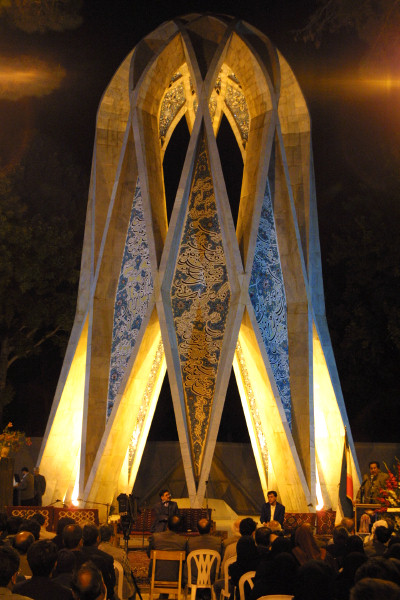| May 2008 |
|
Iran honors great poet Omar Khayyam
Great Iranian Poet Khayyam Mausoleum Iran has honored the 960th birthday anniversary of the eminent Persian poet, astronomer and mathematician, Khayyam of Neyshabur. Born in Iran's northeastern city of Neyshabur, on May 18, 1048, Khayyam is recognized worldwide as one of the most revered Persian poets and astronomers. He is best known for his poetry and his quatrains, dubbed “Rubaiyat of Omar Khayyam”, which was popularized among other nations through Edward Marlborough Fitzgerald's well-known re-created translation in 1859. A volume of the English translation of Rubaiyat of Omar Khayyam is said to have gone down in the tragedy of the Titanic accident on its way to be published in New York. Khayyam's fame as a poet has caused some to forget his scientific achievements which were much more substantial. His mathematical contributions include his Treatise on Demonstration of Problems of Algebra, which gives a geometric method for solving cubic equations by intersecting a hyperbola with a circle. Khayyam also was the chief contributor to the Jalali calendar, an ancestor of the Iranian calendar. It is believed to have been introduced on 15 March, 1079 by the Seljuk Sultan Jalal al-Din Malik Shah I, based on Khayyam's recommendations. Being a solar calendar, the Jalali calendar calculates the year to be 365.242198 days, while scientists today calculate a year to be 365.242190 days. To this day, Khayyam's calendar remains to be one of the world's most accurate calendars. A quatrain by Khayyam, as rendered into English by Edward Fitzgerald, reads as follows: When
once you hear the roses are in bloom, |
